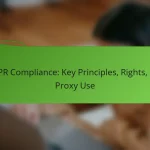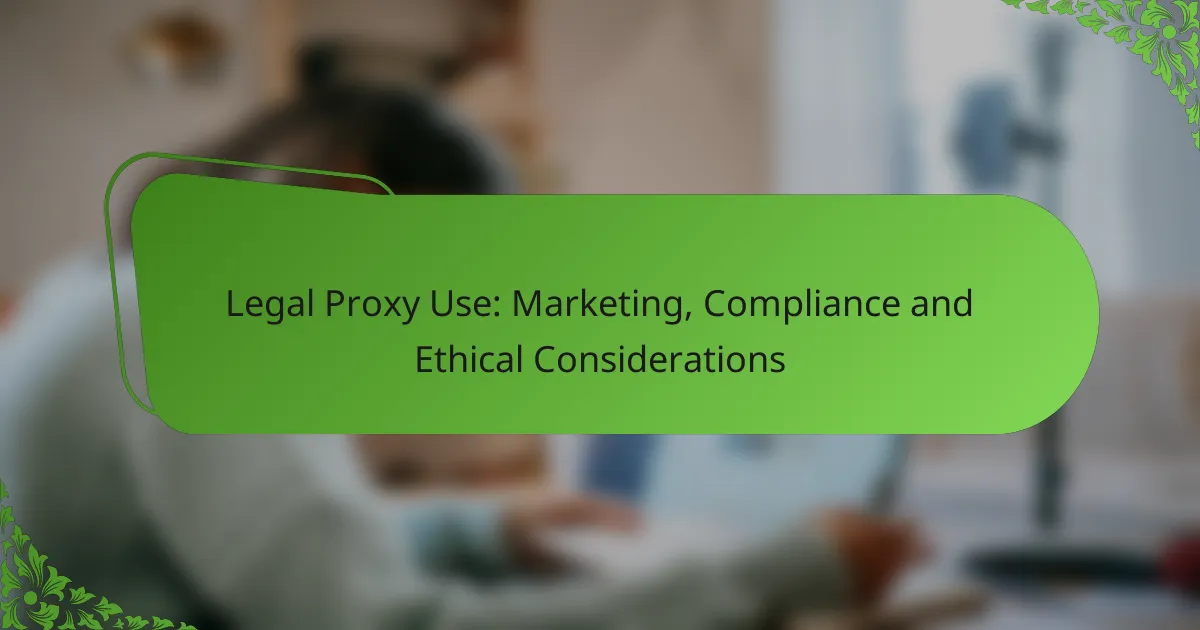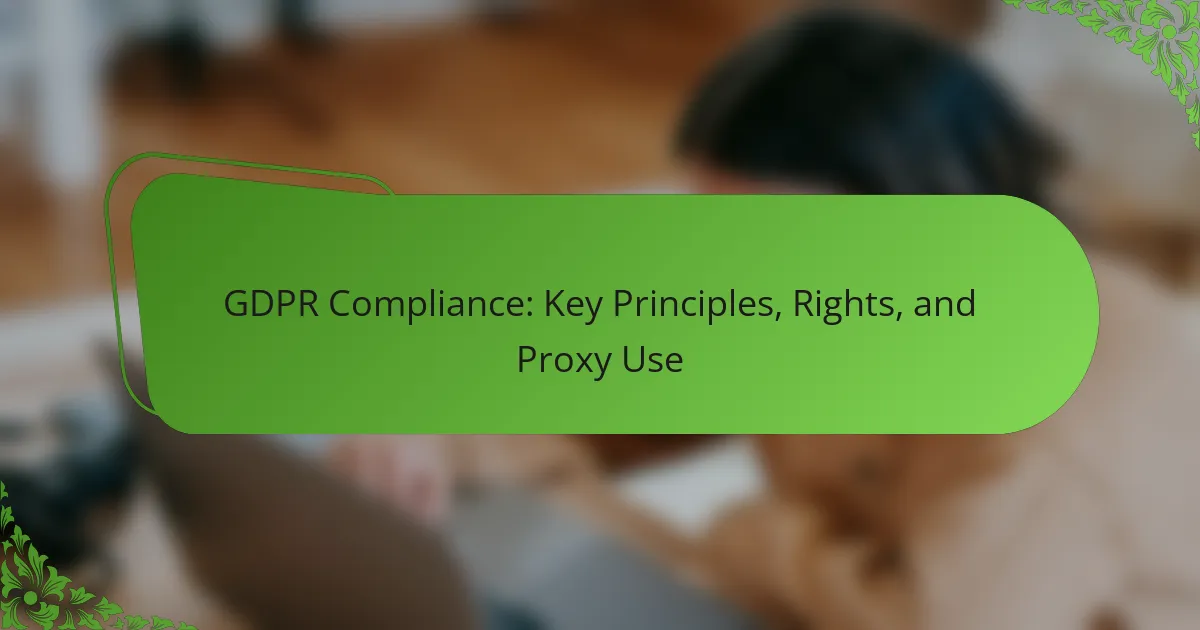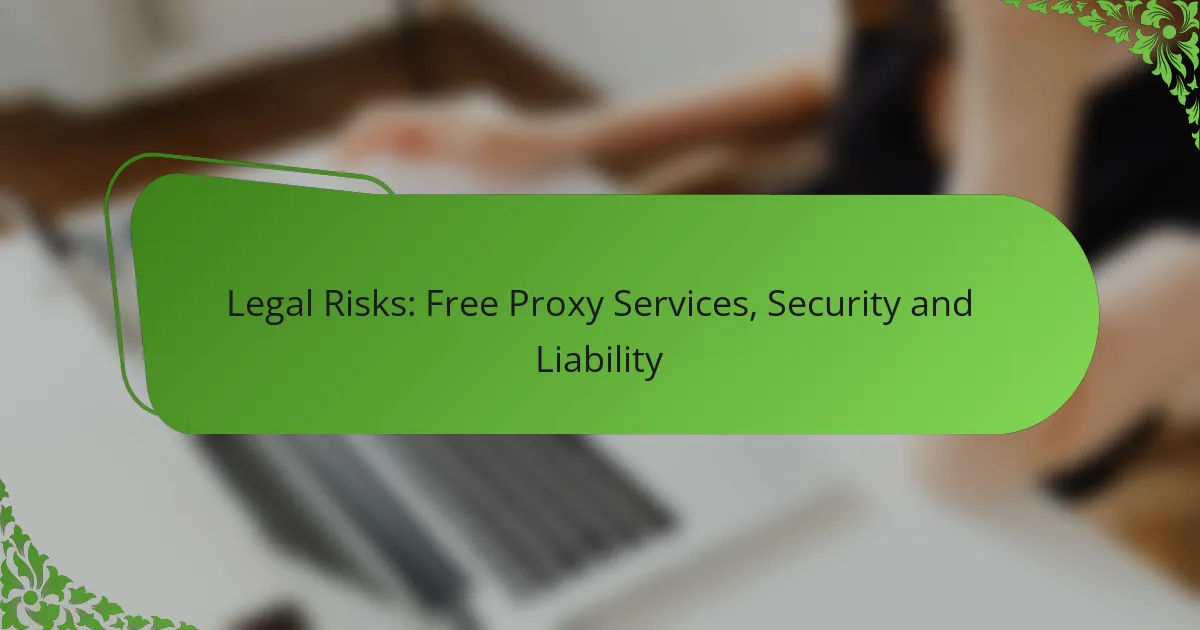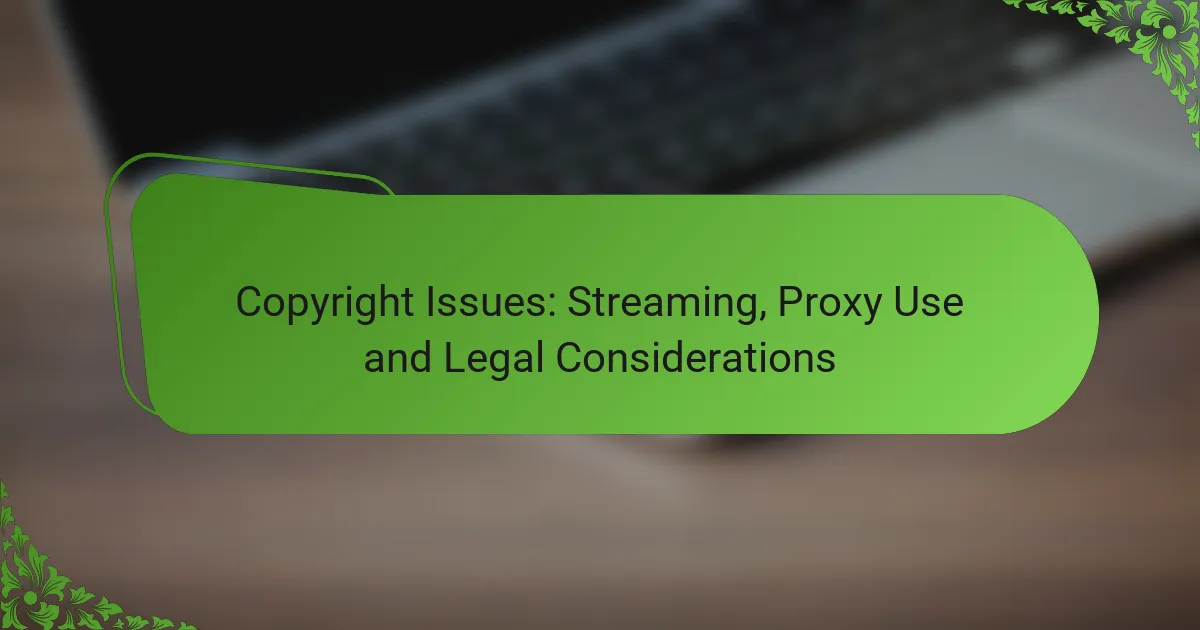Legal proxies play a vital role in enhancing marketing strategies by enabling businesses to access valuable data while remaining compliant with regulations. In the UK, it is essential for organizations to align their proxy usage with data protection and privacy laws, ensuring user consent and ethical data handling practices. By prioritizing transparency and consumer trust, companies can effectively leverage proxies to gain insights without compromising their credibility.
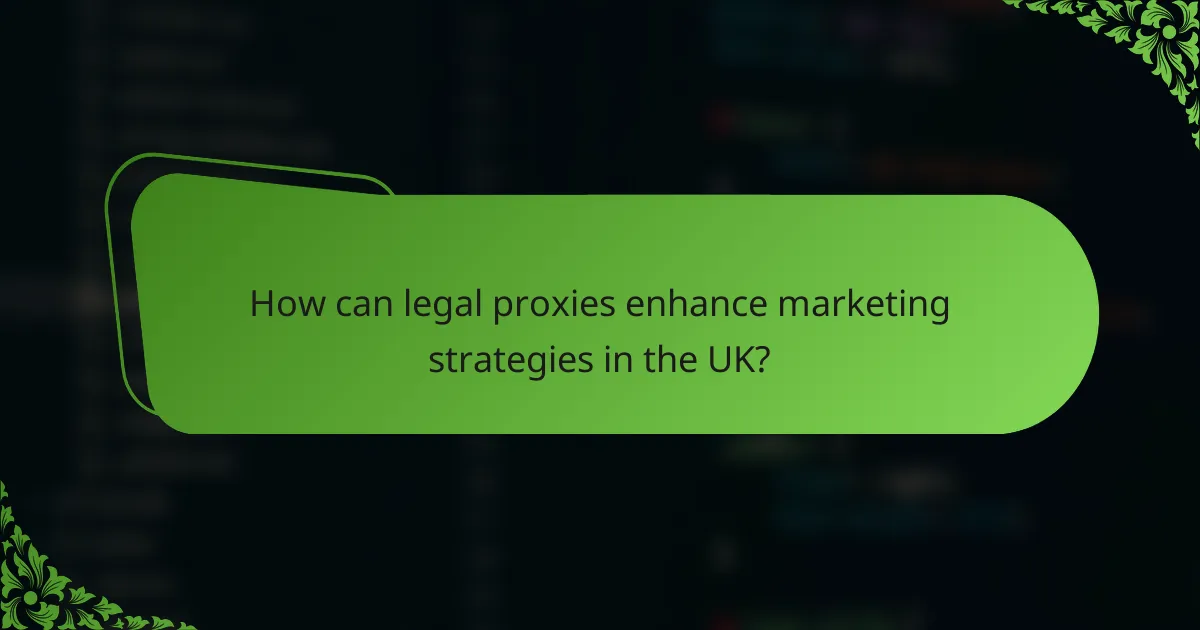
How can legal proxies enhance marketing strategies in the UK?
Legal proxies can significantly enhance marketing strategies in the UK by providing businesses with access to valuable data and insights while ensuring compliance with regulations. By utilizing proxies, companies can gather information on consumer behavior, target specific audiences, and conduct competitive analysis without infringing on privacy laws.
Improved data collection
Legal proxies facilitate improved data collection by allowing marketers to scrape information from various online sources without being blocked or restricted. This enables businesses to gather insights from competitor websites, social media platforms, and market research databases efficiently.
When using proxies for data collection, it’s essential to choose reputable providers that comply with UK data protection regulations, such as the General Data Protection Regulation (GDPR). This ensures that the data collected is both legal and ethical.
Enhanced audience targeting
With legal proxies, marketers can enhance audience targeting by analyzing user behavior and preferences across different regions in the UK. By accessing localized data, businesses can tailor their marketing campaigns to resonate with specific demographics, improving engagement and conversion rates.
For effective audience targeting, consider segmenting your data based on geographic location, age, and interests. This approach allows for more personalized marketing strategies, which can lead to higher customer satisfaction and loyalty.
Competitive analysis
Legal proxies enable businesses to conduct thorough competitive analysis by monitoring competitors’ online activities, such as pricing strategies and promotional campaigns. This information helps companies stay ahead in the market and adjust their strategies accordingly.
When performing competitive analysis, focus on key metrics such as website traffic, social media engagement, and product offerings. Regularly updating this data can provide insights into market trends and help identify opportunities for growth.
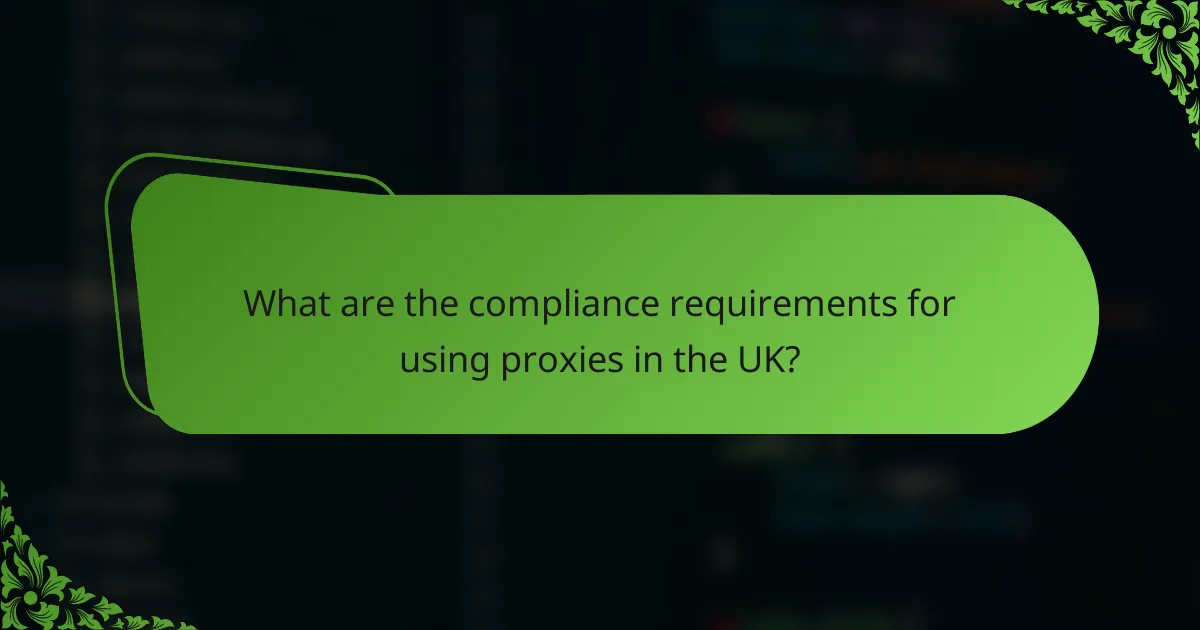
What are the compliance requirements for using proxies in the UK?
In the UK, compliance requirements for using proxies primarily revolve around data protection and privacy regulations. Organizations must ensure that their proxy usage aligns with legal standards, particularly concerning user consent and data handling practices.
GDPR adherence
Under the General Data Protection Regulation (GDPR), any use of proxies must prioritize user privacy and data security. Organizations must obtain explicit consent from users before processing their personal data through proxies. This includes informing users about how their data will be used and stored.
Additionally, businesses should implement measures to protect personal data from unauthorized access while using proxies. This may involve encryption and secure data transfer protocols to ensure compliance with GDPR’s stringent requirements.
Data protection laws
UK data protection laws, including the Data Protection Act 2018, complement GDPR and impose additional obligations on organizations using proxies. Companies must maintain a clear record of data processing activities and ensure that any third-party proxy services comply with these regulations.
Failure to adhere to these laws can result in significant penalties, including fines that can reach millions of pounds. Therefore, organizations should regularly review their proxy usage and data handling practices to ensure compliance and mitigate risks.
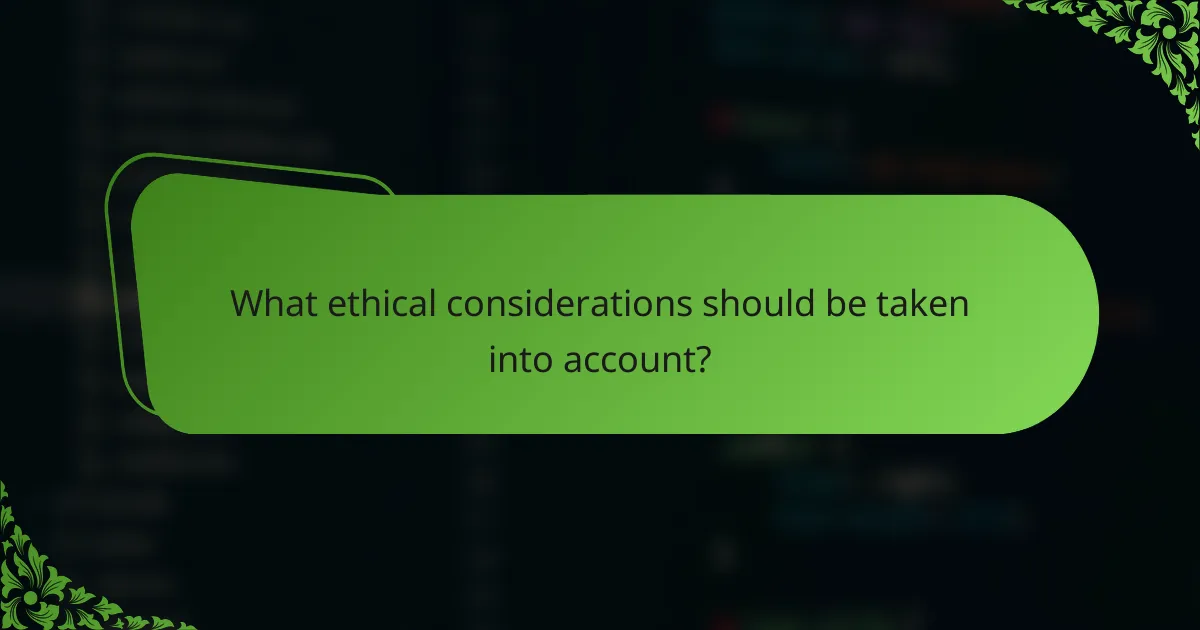
What ethical considerations should be taken into account?
When using legal proxies for marketing, compliance, and other purposes, it is crucial to consider transparency, consumer consent, and the potential impact on trust. Ethical practices ensure that businesses maintain credibility while adhering to legal standards.
Transparency in data usage
Transparency involves clearly communicating how data is collected, used, and shared with third parties. Businesses should provide accessible privacy policies that outline data practices, making it easier for consumers to understand their rights and the implications of their data being used.
For example, companies can implement user-friendly dashboards that allow consumers to see what data is collected and how it is utilized. This openness fosters trust and encourages responsible data handling.
Consumer consent
Obtaining explicit consumer consent is a fundamental ethical consideration. Businesses should ensure that consent is informed, meaning consumers understand what they are agreeing to and the potential consequences of their data sharing.
Implementing opt-in mechanisms, where consumers actively agree to data collection, is a best practice. Avoid pre-checked boxes or vague language, as these can lead to misunderstandings and potential legal issues. Regularly reviewing consent practices can help maintain compliance with evolving regulations.
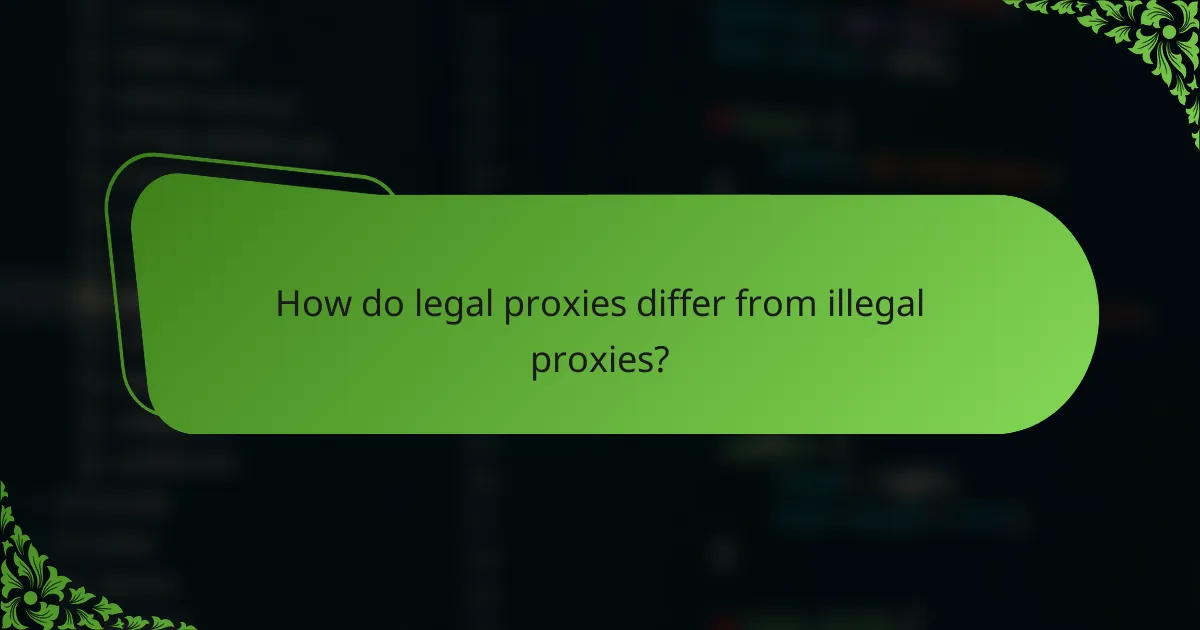
How do legal proxies differ from illegal proxies?
Legal proxies are authorized tools used to access the internet or specific services while complying with laws and regulations, whereas illegal proxies operate outside legal frameworks and often facilitate unlawful activities. Understanding these distinctions is crucial for businesses to ensure compliance and maintain ethical standards.
Legitimate use cases
Legal proxies are commonly used for various legitimate purposes, such as enhancing online privacy, bypassing geo-restrictions, and conducting market research. For instance, companies may use proxies to gather data from competitors or analyze consumer behavior without revealing their identity.
Another legitimate use case includes improving security by masking IP addresses during sensitive transactions. This is particularly relevant for financial institutions that need to protect customer data while ensuring compliance with regulations like GDPR or CCPA.
Legal ramifications
The use of illegal proxies can lead to severe legal consequences, including hefty fines and potential criminal charges. Engaging with illegal proxies may violate laws related to data protection, intellectual property, or even cybersecurity, depending on the jurisdiction.
Conversely, utilizing legal proxies requires adherence to specific regulations and ethical guidelines. Businesses must ensure that their proxy usage aligns with local laws and industry standards to avoid legal pitfalls. Regular audits and compliance checks can help mitigate risks associated with proxy use.
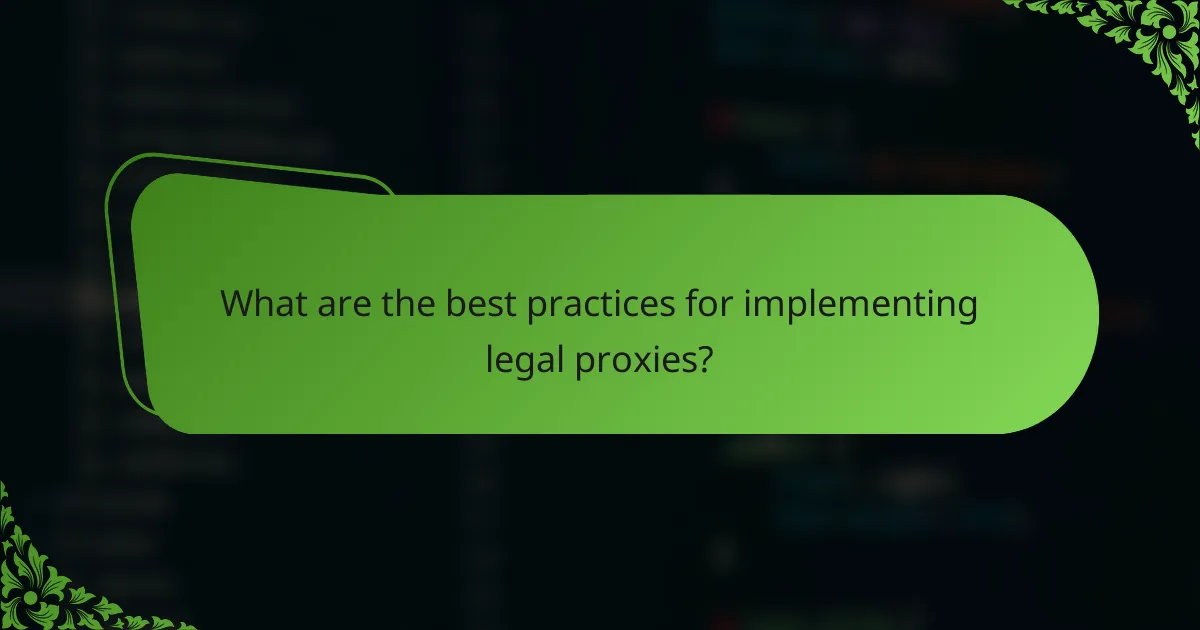
What are the best practices for implementing legal proxies?
Implementing legal proxies effectively requires careful consideration of provider reliability and ongoing compliance. Adhering to best practices ensures ethical use while minimizing legal risks.
Choosing reliable proxy providers
Selecting trustworthy proxy providers is crucial for maintaining compliance and ethical standards. Look for providers with a solid reputation, transparent policies, and proven track records in the industry.
Consider factors such as data security, customer support, and the geographical diversity of their proxy servers. Reliable providers often offer detailed documentation and user reviews, which can guide your decision-making process.
Additionally, ensure that the provider complies with relevant regulations, such as GDPR in Europe or CCPA in California, to avoid potential legal issues.
Regular compliance audits
Conducting regular compliance audits is essential for ensuring that your use of proxies aligns with legal and ethical standards. These audits should assess both the technical aspects of proxy usage and adherence to applicable laws.
Establish a schedule for audits, ideally quarterly or bi-annually, to review proxy activities, data handling practices, and provider compliance. This proactive approach helps identify potential issues before they escalate.
During audits, check for documentation of consent where necessary and ensure that data protection measures are in place. This can include verifying that proxies do not log sensitive user information or violate privacy regulations.
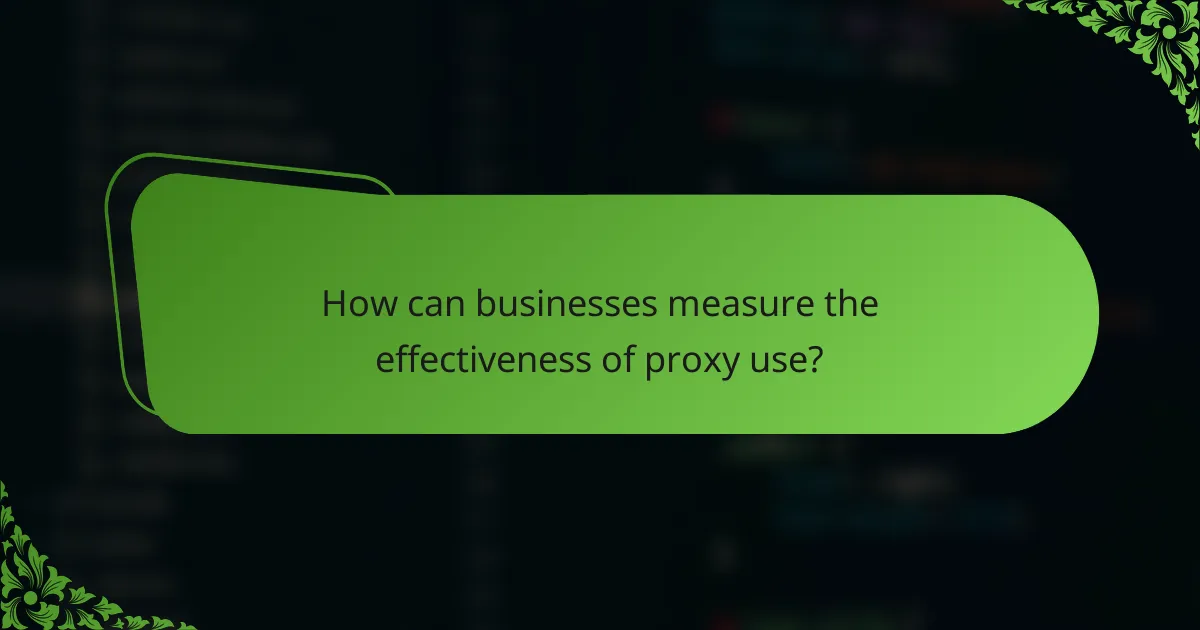
How can businesses measure the effectiveness of proxy use?
Businesses can measure the effectiveness of proxy use by analyzing performance data and assessing compliance with marketing goals. This involves using various tools and metrics to evaluate how well proxies are serving their intended purposes, such as enhancing reach or ensuring regulatory adherence.
Analytics and reporting tools
Utilizing analytics and reporting tools is crucial for tracking the effectiveness of proxy use. Tools like Google Analytics, HubSpot, or custom dashboards can provide insights into user engagement, conversion rates, and overall campaign performance. These platforms allow businesses to visualize data trends and make informed decisions based on real-time metrics.
When selecting analytics tools, consider integration capabilities with existing systems and the ability to generate customizable reports. This ensures that the data collected aligns with specific marketing objectives and compliance requirements, facilitating a more comprehensive analysis of proxy effectiveness.
Key performance indicators
Key performance indicators (KPIs) are essential for quantifying the success of proxy use. Common KPIs include conversion rates, click-through rates, and user retention metrics. Establishing clear KPIs allows businesses to set benchmarks and measure progress over time, helping to identify areas for improvement.
For effective measurement, businesses should focus on a mix of quantitative and qualitative KPIs. For instance, while numerical data provides a clear picture of performance, customer feedback can offer insights into user experience and satisfaction. Regularly reviewing these indicators helps ensure that proxy strategies remain aligned with business goals and regulatory standards.
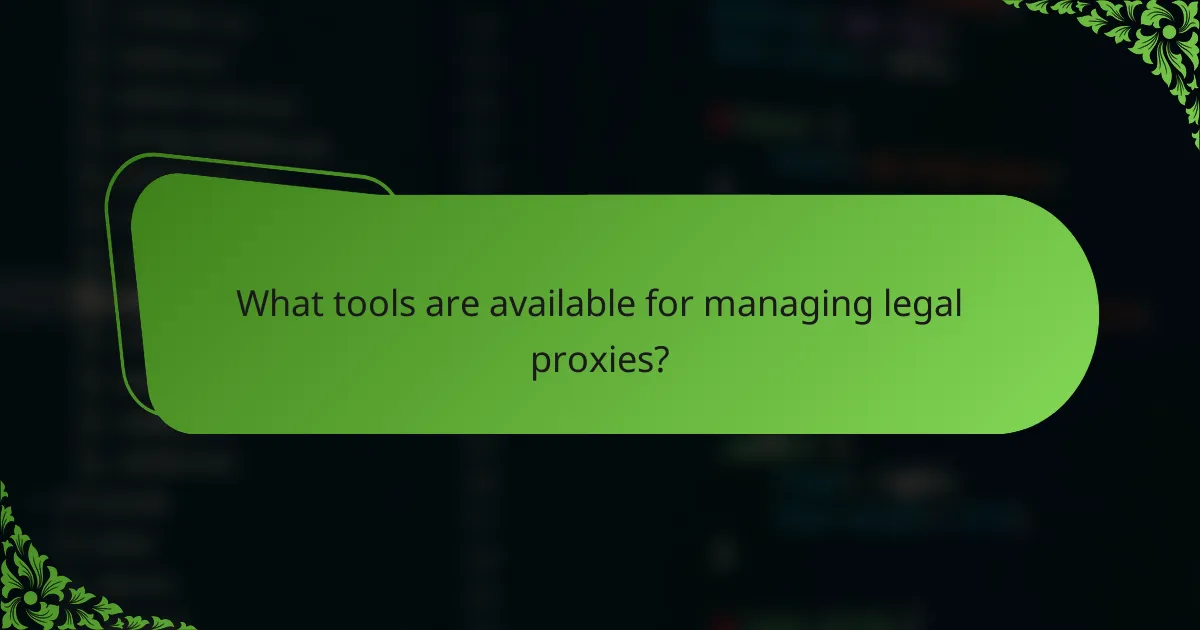
What tools are available for managing legal proxies?
Several tools are available for managing legal proxies, each offering unique features to enhance marketing, compliance, and ethical considerations. These tools help businesses navigate the complexities of proxy management while ensuring adherence to legal standards.
Bright Data
Bright Data, formerly known as Luminati, is a leading provider of proxy services that offers a vast network of residential, data center, and mobile proxies. It allows users to manage their proxies through an intuitive dashboard, enabling easy access to various locations and IP types.
When using Bright Data, consider its pricing structure, which typically operates on a pay-as-you-go model based on bandwidth usage. This flexibility can be beneficial for businesses with varying proxy needs, but it’s essential to monitor usage to avoid unexpected costs.
Smartproxy
Smartproxy is another popular tool that provides a user-friendly interface for managing proxies, focusing on residential and data center options. It is known for its ease of use and quick setup, making it suitable for marketers and developers alike.
Smartproxy offers competitive pricing plans, often based on the number of concurrent connections and bandwidth. Users should evaluate their specific requirements to choose the most cost-effective plan, ensuring they maximize the benefits of the service without overspending.
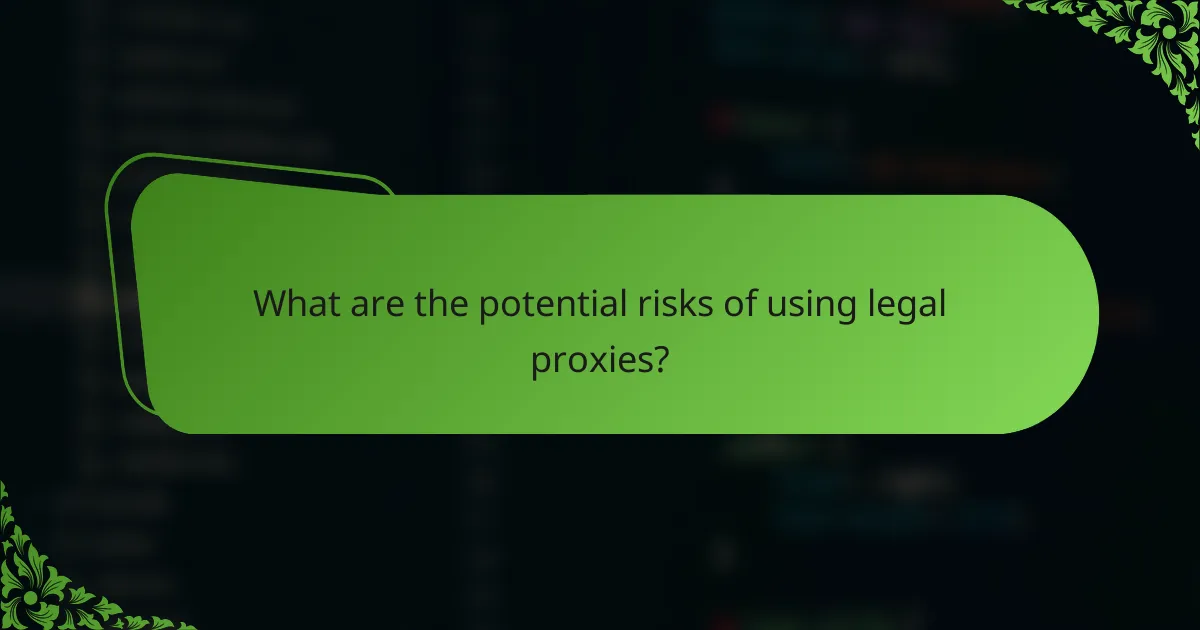
What are the potential risks of using legal proxies?
The potential risks of using legal proxies include data privacy concerns, compliance issues, and ethical dilemmas. While proxies can facilitate marketing efforts, they may expose businesses to legal scrutiny or damage their reputation if misused.
Data Privacy Concerns
Using legal proxies can lead to data privacy issues, especially if personal information is collected or processed without proper consent. Businesses must ensure that their use of proxies complies with data protection regulations like GDPR in Europe or CCPA in California.
To mitigate risks, companies should implement strict data handling policies and regularly audit their proxy usage. This includes ensuring that any data collected through proxies is anonymized and that users are informed about data practices.
Compliance Issues
Compliance issues can arise when legal proxies are used to bypass restrictions or regulations. For instance, using proxies to access geo-restricted content may violate terms of service or local laws.
To stay compliant, organizations should conduct thorough research on the legal implications of proxy use in their target markets. Consulting with legal experts can help clarify what is permissible and what could lead to penalties.
Ethical Dilemmas
Ethical dilemmas often accompany the use of legal proxies, particularly in marketing. Misleading consumers or manipulating data can erode trust and damage brand reputation.
Businesses should adopt ethical guidelines for proxy usage, ensuring transparency in their marketing practices. Engaging with customers honestly and respecting their privacy can foster loyalty and long-term success.

